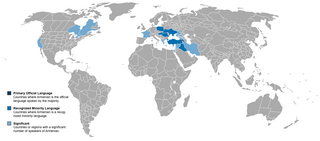1. The Central Electoral Commission has seven members. The members of the Central Electoral Commission are appointed by the President of the Human Rights Defender, Chairman of the Court of Appeals of the Republic of Armenia and the Chairman of the Chamber of Advocates of the Republic of Armenia. The members of the Commission are appointed for a period of 6 years.
The Human Rights Defender is an official, who, acting pursuant to the Constitution and the Law of the Republic of Armenia, as well as principles and norms of International Law, on behalf of the State protects the human rights and fundamental freedoms violated by central and local government agencies or their officials.
2. Three members of the Central Electoral Commission are appointed by the proposal of the Human Rights Defender, two by the proposal of the Chairman of the Court of Appeals, two by the proposal of the Chairman of the Chamber of Advocates. The members proposed by the Chairman of the Court of Appeals and the Chairman of the Chamber of Advocates must be representatives of different sexes and at least one out of the two members proposed by each Chairman should have an education or an academic degree in the field of law.
3. An Armenian citizen can be eligible to be selected as a member of the Central Electoral Commission who is not involved in social and political activities and has:
- a higher education in the field of law and 3 years of professional work experience in his field in at least the past 5 years
- an academic degree in law and 3 years of professional work experience in his field in at least the past 5 years
- a higher education and 5 years of work experience in the public services in the state bodies in at least the past 10 years, or
- a higher education and 3 years of work experience in the current electoral commission in at least the past 5 years.
4. The Head of the Central Electoral Commission, the Deputy Head of the Central Electoral Commission and the Secretary of the Central Electoral Commission should be elected by the Commission from among its members:
5. The details of the member candidates of the Central Electoral Commission are presented to the Staff of the President of the Republic not earlier than 30 days and not later than 20 days before the voting till 6 pm. The member candidates are informed about the day of the job expiry of the current commission member by the Head of the Central Electoral Commission not earlier than 50 days before the job expiry day.
6. The Decree of the President of the Republic about the appointment of the new members is published not later than 7 days before job expiry of the current member.
7. In case of an early job termination of a member of the Central Electoral Commission the vacant position is occupied in a period of 21 days. The new member should work in the commission for as long as the early terminated member did not work at the Commission. If this period is below 1 year then the new member gets to have the job for as long as it was supposed to be occupied plus 6 extra years.
8. The right to nominate candidates for the positions of the Head of the Central Electoral Commission, the Deputy Head of the Central Electoral Commission and the Secretary of the Central Electoral Commission belong to the members of the Central Electoral Commission.
9. The Head, The Deputy Head and The Secretary of the Central Electoral Commission should be elected by an open vote. If only one person has been selected as a candidate for the Head, Deputy Head or Secretary of the Central Electoral Commission then he should be elected if he receives the majority of the votes of the voters. If more than one person has been selected as a candidate for the Head, Deputy Head or Secretary of the Central Electoral Commission then the candidate to receive the majority of the votes gets elected. In case of a tie, the candidate gets selected by a draw.

The Politics of Azerbaijan takes place in a framework of a semi-presidential republic, with the President of Azerbaijan as the head of state, and the Prime Minister of Azerbaijan as head of government. Executive power is exercised by the president and the government. Legislative power is vested in both the government and parliament. The Judiciary is nominally independent of the executive and the legislature. The state system of Azerbaijan defines the Constitution of the Republic of Azerbaijan. According to the constitution, Azerbaijan is a democratic, secular, unitary republic.
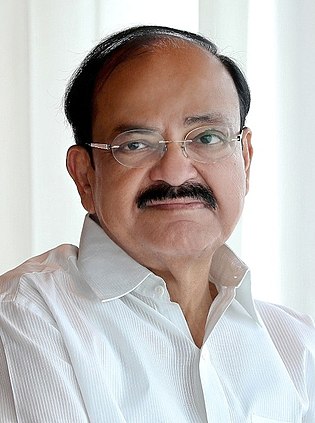
The Vice President of India is the second-highest constitutional office in India after the President. Article 63 of Indian Constitution states that "There shall be a Vice President of India." The Vice President acts as President in the absence of the president due to death, resignation, impeachment, or other situations.
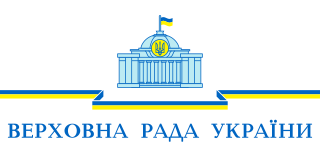
The Verkhovna Rada of Ukraine, often simply Verkhovna Rada or just Rada, is the unicameral parliament of Ukraine. The Verkhovna Rada is composed of 450 deputies, who are presided over by a chairman (speaker). The Verkhovna Rada meets in the Verkhovna Rada building in Ukraine's capital Kiev.

The 2005 Palestinian presidential election — the first to be held since 1996 — took place on Sunday, 9 January 2005 in the West Bank and Gaza Strip. Voters elected PLO chairman Mahmoud Abbas to a four-year term as the new President of the Palestinian Authority to succeed Yasser Arafat, who died on 11 November 2004.
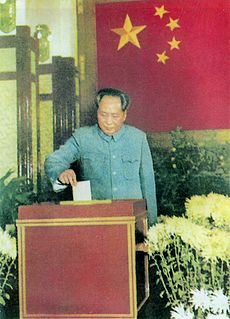
Elections in China are based on a hierarchical electoral system, whereby local People's Congresses are directly elected, and all higher levels of People's Congresses up to the National People's Congress, the national legislature, are indirectly elected by the People's Congress of the level immediately below.
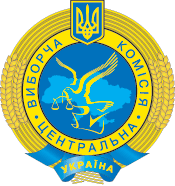
The Central Election Commission of Ukraine is a permanent and independent collegiate body of the Ukrainian state that acts on the basis of the Constitution of Ukraine, the laws of Ukraine and is responsible for organizing the arrangements and the conduct of the presidential and parliamentary elections in Ukraine as well as the local elections at all levels, managing the all-Ukrainian and local referenda according to the procedure and within the legal framework defined by the laws of Ukraine.

Elections in Lithuania gives information on elections and election results in Lithuania.
The Justice Party is a left-wing political party in Ukraine. The party merged into the (then) new party United Left and Peasants in December 2011. Justice Party leader Stanislav Nikolaenko became the first party leader of United Left and Peasants. United Left and Peasants changed its name to Justice Party in 2014.

The Chairman of the State Duma of the Federal Assembly of the Russian Federation, also called Speaker (спикер), is the presiding officer of the lower house of the Russian parliament. His responsibilities include overseeing the day-to-day business of the State Duma presiding and maintaining order at the regular sessions of the parliament. The Speaker also chairs the Council of the Duma which includes representatives from all the parliamentary parties and determines the legislative agenda.

The State Council of Crimea is the parliament of the Republic of Crimea. It had previously been called the 'Supreme Council of Crimea but changed its name in March 2014 following a vote by the Ukrainian parliament to dissolve the Supreme Council of Crimea. The Parliament is housed in the Parliament building in the centre of Simferopol.

Artur Baghdasaryan is a Republic of Armenia politician and former President of the National Assembly of the Republic of Armenia. He is the leader of the pro-government Armenia Renaissance party. He is married and has two children.

The Election Commission of Pakistan, is an independent, autonomous, permanent and constitutionally established federal body responsible for organizing and conducting of elections to state parliament, provincial legislatures, local governments, elections to the office of President of Pakistan, delimitation of constituencies and preparation of Electoral Rolls. As per the principles enlightened by the Constitution of Pakistan, the Commission makes such arrangements as are necessary to ensure that the election is conducted honestly, justly, fairly and in accordance with law, and that corrupt practices are guarded against The Election Commission was formed on 23 March 1956 and has been restructured and reformed in various occasions of history of the country.

The fairness of the 2008 Russian presidential election is disputed, with election monitoring groups giving conflicting reports. Most official reports accept that not all candidates had equal media coverage and that some election monitoring groups had restricted access to perform their role. Monitoring groups found a number of other irregularities, but made no official reports of fraud or ballot stuffing.

The Ukrainian parliamentary election of 2012 took place on 28 October 2012. Because of various reasons, including the "impossibility of announcing election results" various by-elections have taken place since. Hence, several constituencies have been left unrepresented at various times.
Local government in Ukraine consists of administrative divisions of Ukraine. There are 24 oblasts (regions), with each oblast further divided into raions (districts).
Eugeniu Ştirbu is a politician from Moldova.

Presidential elections were held in Ukraine on 25 May 2014, resulting in Petro Poroshenko being elected President of Ukraine. Originally scheduled to take place on 29 March 2015, the date was changed following the 2014 Ukrainian revolution. Poroshenko won the elections with 54.7% of the votes, enough to win in a single round. His closest competitor was Yulia Tymoshenko, who emerged with 12.81% of the votes. The Central Election Commission reported voter turnout at over 60% excluding those regions not under government control. Since Poroshenko obtained an absolute majority in the first round, a run-off second ballot was unnecessary.
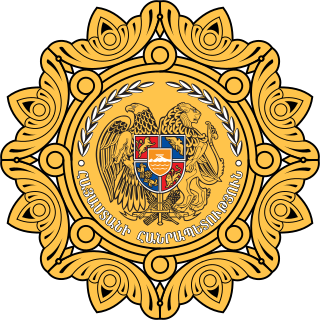
The President of Armenia is the head of state and the guarantor of independence and territorial integrity of Armenia elected to a single seven year term by the National Assembly of Armenia. Under Armenia's parliamentary system, the President is simply a figurehead and holds ceremonial duties, with most of the political power vested in the Parliament and Prime Minister.
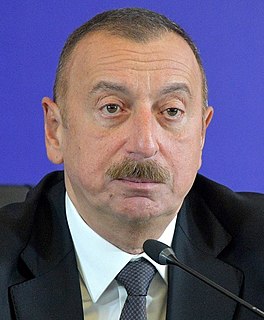
Presidential elections were held in Azerbaijan on Wednesday, 11 April 2018. Eight candidates ran for the presidency. Incumbent President Ilham Aliyev was re-elected president for a seven-year term. The election was the first since the 2016 Constitutional Referendum, which extended the presidential term from five to seven years.

A constitutional referendum was held in Armenia on 6 December 2015. Its amendments to the constitution put the country on a course from having a semi-presidential system to being a parliamentary republic, with the changes beginning to take place during the 2017–18 electoral cycle. The referendum passed with 66.2% of voters supporting it. Voter turnout was 50.8%, passing the 33% threshold to validate the results.

